Spaces of Collective Learning, Relearning and Unlearning with Drama Queens
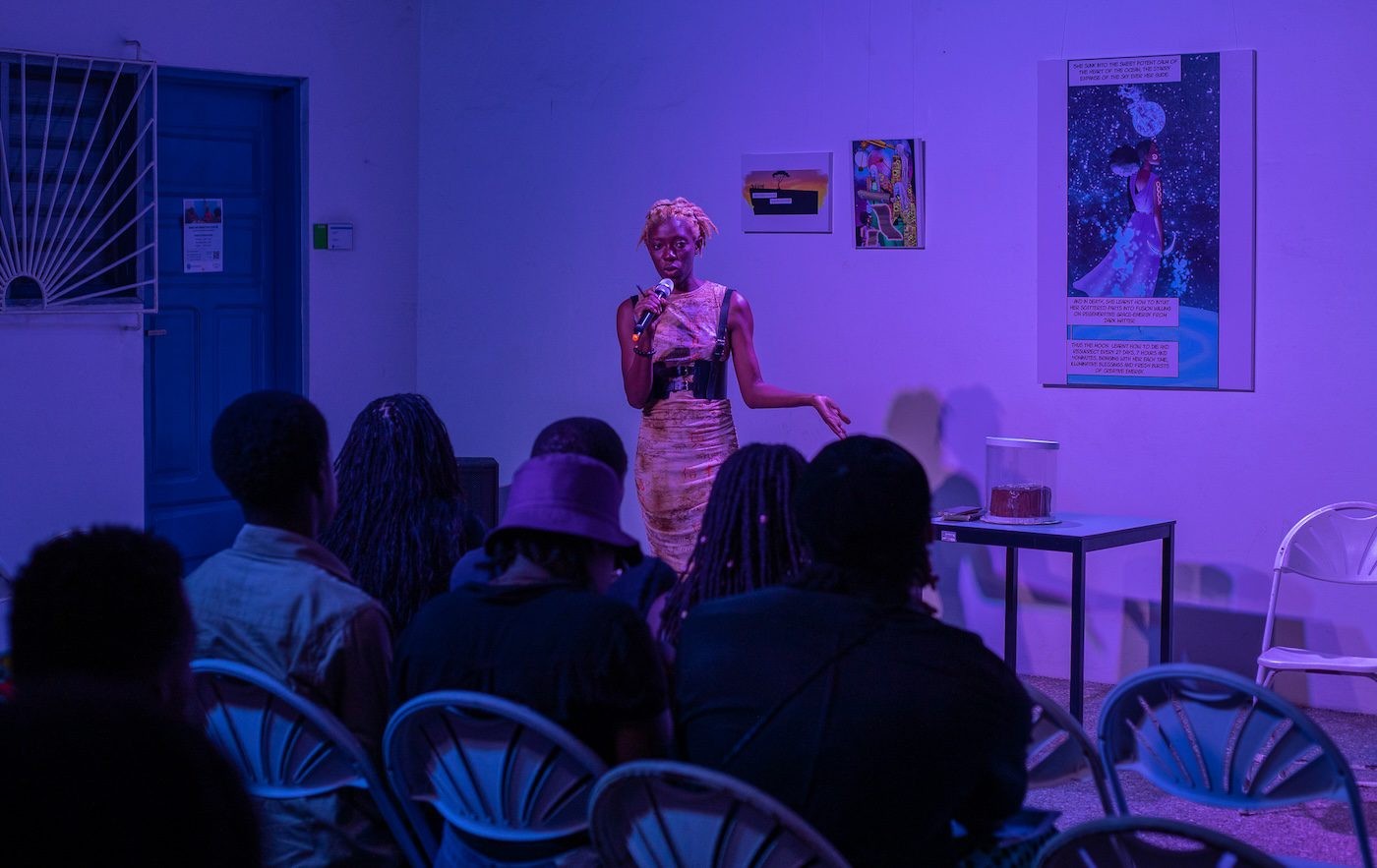
The queer-feminist collective shares its actions and visions with the newly founded W'AHU Magazine, which celebrates Ghana's diverse communities.
A conversation betweenW’AHU Magazine andDrama Queens co-directors Michaella Gyatsen and Owuraku.
W’AHU Magazine: Let’s start right away with some introductions! Who are you? And what is Drama Queens?
Owuraku: Drama Queens is a Feminist, Pan Africanist and Queer youth-led nonprofit. So basically it’s a collective of young people who are very passionate about arts and social change, using arts to centre the narratives around women and queer folks through theatre, film documentaries and any creative means necessary.
Michaella Gyatsen: The thematic areas that we cover in our artistic activism are centred around bodily autonomy, consent culture, queer liberation, ecological justice, equal accessibility and radical empathy.
W’AHU: Given the current situation with the anti LGBTQ+ bill being debated in Parliament, it seems that the concept of a queer community is something that has almost gone mainstream in Ghana. With that in mind, what do you think are the most common stereotypes associated with the queer community in Ghana, and what are the main forces pushing these stereotypes?
MG: The anti LGBT or anti-gender sentiment in Ghana is not a coincidence – there are people actively cultivating it. A huge part of that is because of the social and cultural influences that were pushed on us through colonisation. But you can’t put all of the blame on the colonial powers when you have people in Ghana in 2023 actively fuelling these sentiments. We’re seeing a regression of kindness and empathy happening in real time, and that's very troubling. There are multiple layers to all of it: it’s a matter of where you stand and your access to power, and how that relates to other people who might not have that level of power.
O: I identify as a non-binary person so I'm having to experience the anti-LGBT climate in Ghana first-hand. I would say there are a lot of misconceptions being used to fight against the queer community in order to pass the bill. There are politicians feeding some of these stereotypes, and the media has also not been helpful in fostering honest open dialogue with people who are experiencing this violence.
W'AHU: What are some projects that you have organised in which you try to challenge these narratives?
MG: I think our entire existence is a rebellion against the system just by existing in our spaces and gathering people together along the principles that we believe in. We are very deliberate about creating safe spaces, so everyone can exist in that space and express their opinion, even when their opinions don't have anything to do with how they identify.
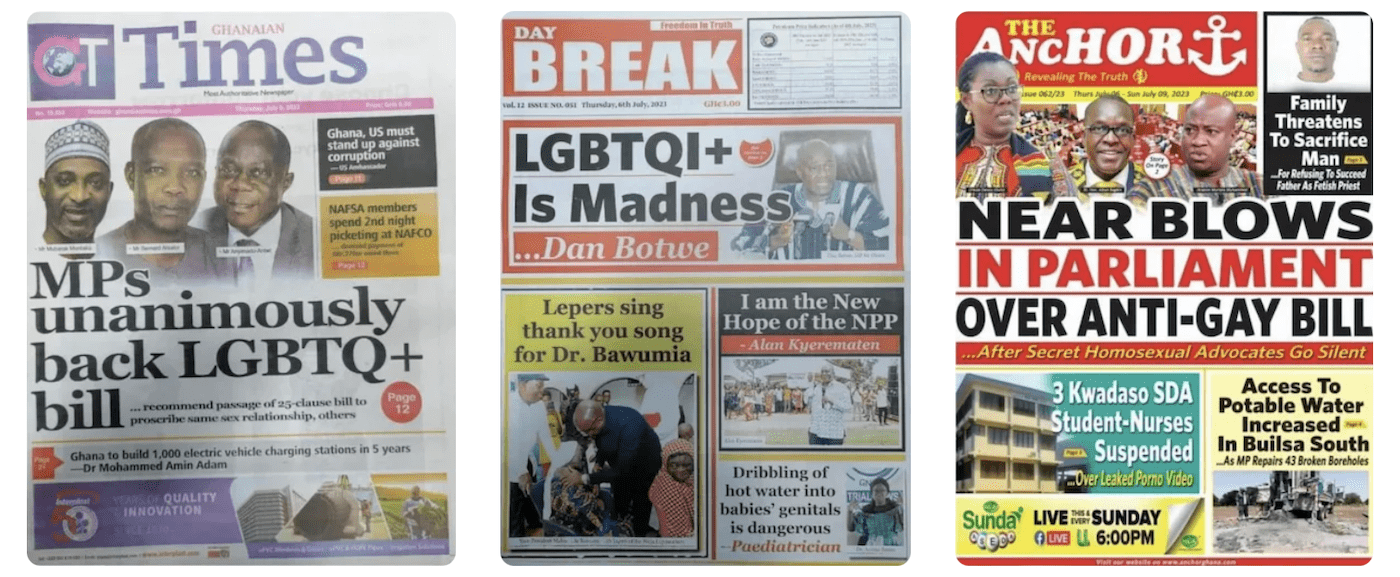
Images of Ghanaian press coverage of the anti-LGBTQ+ bill.
(Images shared by Rightify Ghana).
O: Our programming centers around performing arts, conversations, commissioning music, producing documentary films, theatre productions and zines.Moon Girls for example is a graphic novel that follows four African supersheroes fighting against the system and trying to create social change. Using art means we are able to document queer history and queer realities, making sure that we're able to tell our own narrative and stand up to violence.
MG: When we are planning or conceptualizing a project we give priority to members of minority groups leading the projects, and at the end of the day queer people are represented in the project and influence how it should run. So the end result might not look like all rainbows and sparkles – it's more about the thought and the energy behind organizing whatever we are doing.
W'AHU: On one hand you create moments where people can be themselves, and on the other you lead projects geared towards changing people's perspectives. Are these always separate events, or do you take a more fluid approach?
MG: I think it is important to encourage spaces of collective learning, relearning and unlearning. Just because a lot of our audience are queer does not always equate to knowing better or doing better.
O: Language is very important, so it is incumbent on us to be intentional in how we engage with people so that we're not just creating safe spaces for queer people, but we are also learning together. We have these conversations together and hold people accountable together to make sure it's a safe space for the next person.
W'AHU: Considering the increasingly difficult political climate, how do you decide if a work should be seen by a wider audience or focused more inwardly towards your community?
O: When the anti-LGBT bill came in though, it arrived with a new set of challenges. There have been some instances where partners did not want us to host a queer event in their space, or we encountered some form of administrative terms and conditions that we couldn’t agree to without saying that queer people should be minimised. So visibility is a part of our conversation, up until the point where it is safe for you. At the end of the day more violence is being done to queer people who are living their authenticity.
MG: We believe that everyone, regardless of how you are perceived or express yourself, should have access to things that other people have access to, but all of this is within the context of the personal and collective security of the people involved and attending our events. We don't shy away from expressing the things we believe in, [but] we say these things in the context of the spaces we curate in a way that is safe for the people that are going to be associating themselves with us.
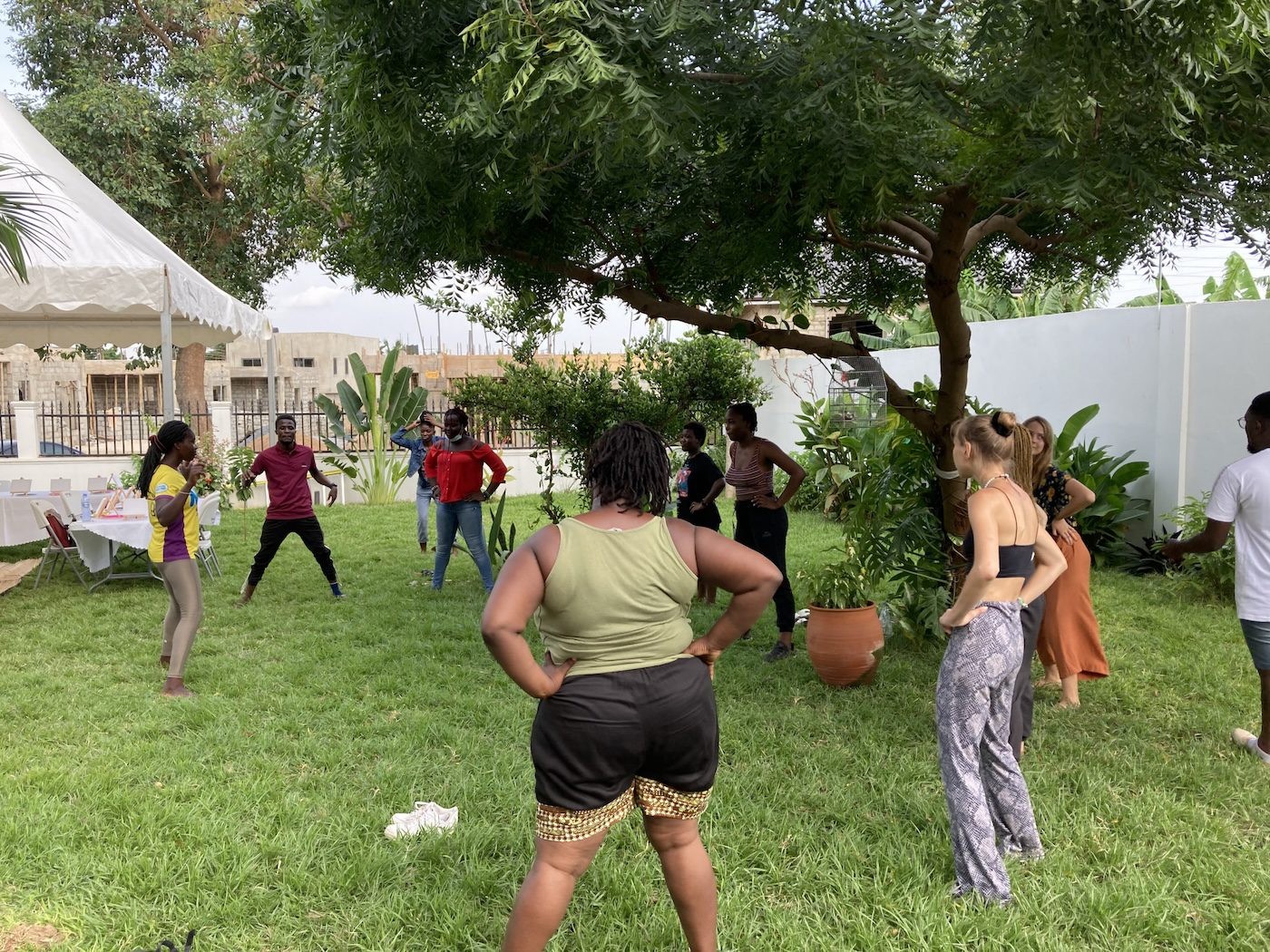
Image courtesy of Drama Queens (2023).
W'AHU: To understand the shape that some of these events take, could you expand on the role of art and creativity for Drama Queens?
O: Art is an important part of trying to connect with another human being, it carries a lot of messages and a lot of storytelling. We are collectively conscious of narratives so that we can begin to change them. As queer activists in Ghana fighting against this anti-LGBT bill, we realised that the kinds of violence or the kind of systems that we have to change go beyond just legal: we are fighting to help change the narrative.
MG: Another reason why art is important to us is because it is something that can go under radar–art connects with people on an emotional level. When something connects with people on an emotional level, it enters their consciousness, and before they do anything, they feel differently about certain things that they might have not thought about before. It’s also something that provides instant gratification that motivates us , so we face less fatigue, because an activist’s work can be very hard. Still, sometimes the impact of art-based activism is not always direct or easy to see.
W'AHU: What kinds of responses do you typically get from your audience?
MG: It’s very common that our audiences are uncomfortable, and that's okay. You should be uncomfortable because when you're uncomfortable, you are one step closer to thinking about why you're uncomfortable. And once you start to think about why you are uncomfortable, you start to question things and seek deeper understanding.
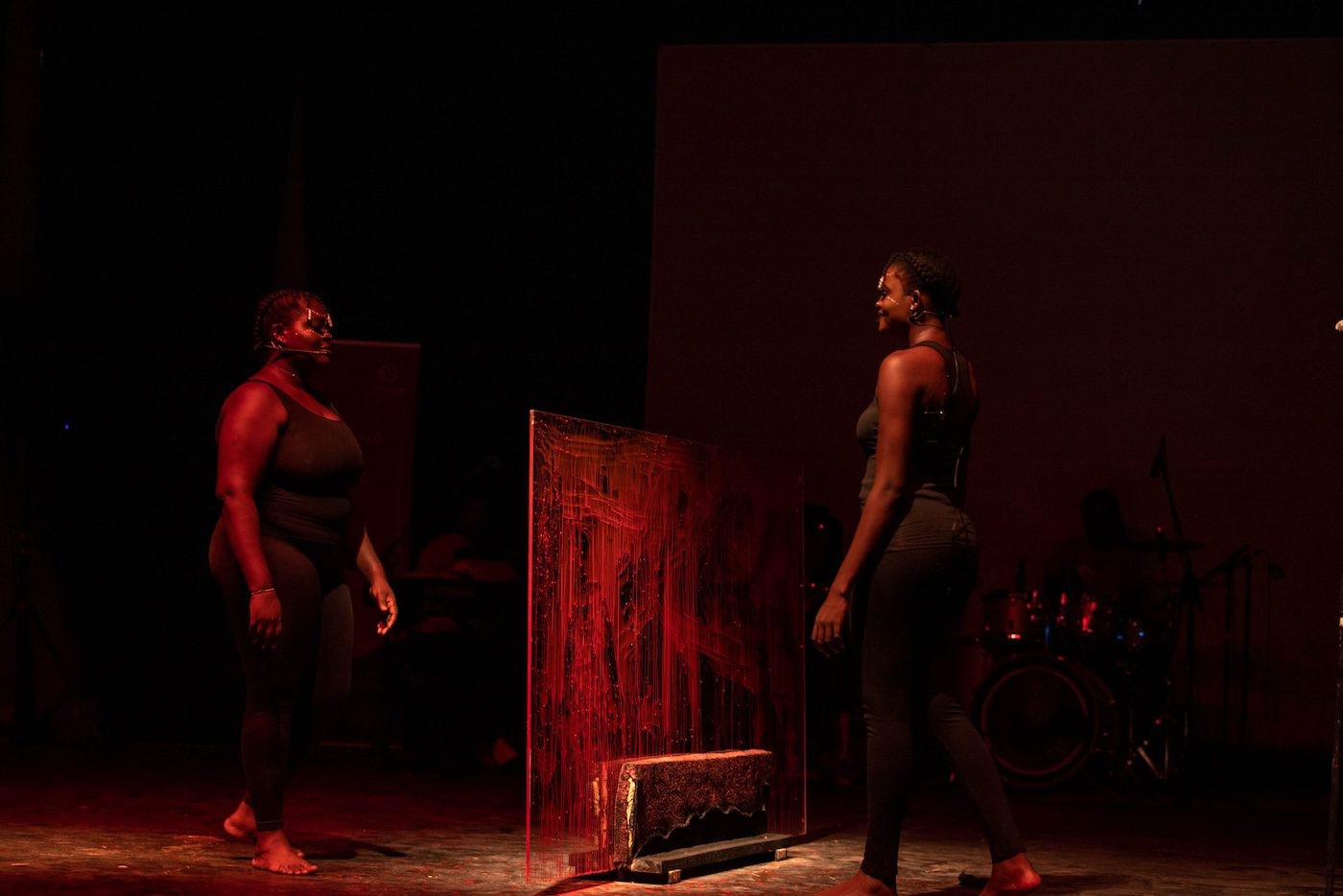
In 2018, Drama Queens staged ‘Just Like Us’, Ghana’s first theatre production centred on the realities of queer lives in Africa, which was met with multiple threats of legal injunctions. They have since successfully staged ‘Until Someone Wakes Up’ (2019), ‘An African Man’(2020), ‘Ashikishan’(2021), ‘Liberating pleasures’(2022) and ‘Monsoons’(2022). Image courtesy of Drama Queens.
W’AHU: It seems there’s a general sex-positivity and openness in what you do. Could you expand on this?
MG: The openness around sex in the DQ community is something we're pretty proud of. It comes from us creating a safe space to make people feel able to put down their mental walls. Ghanaians we have plenty problems… so it's great that people can find instances where they don't have to feel so oppressed and can express themselves, even for a few hours.
W'AHU: How do you foster this more officially through your programming?
MG: One way that we encourage informed decisions is through our ‘Let’s Talk Consent’ workshops. Sex education [in Ghana] is all about abstain, abstain, abstain. It's never really about the choices or the options you have, s o something that is really cool about Drama Queens is that in our own small way we provide opportunities and resources for learning so that we can make better decisions.
W'AHU: It’s great how you manage to merge different levels of engagement with the community, from the creative and artistic output, to, sharing information around health and education, and….
MG: …and parties!
W’AHU: And parties?
MG: We throw some of the best parties here!
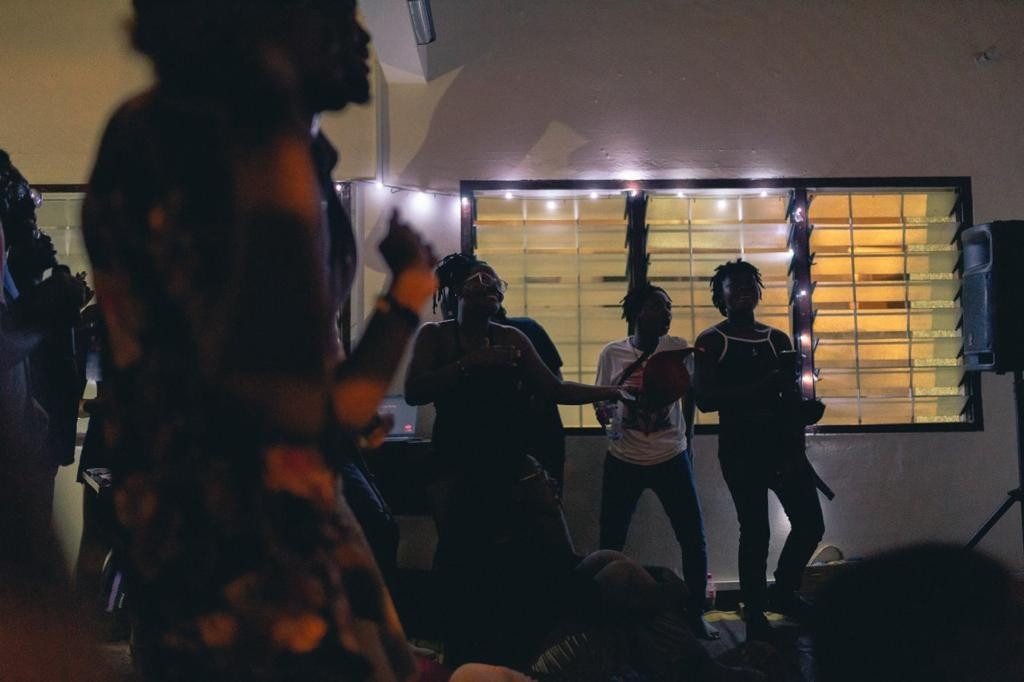
Image courtesy of Drama Queens (2023).
This text is an edited version of a longer interview first published in W'AHU Magazine, where Drama Queens held the role of Contributing Editors. It has been republished in collaboration withOtherNetwork as part of the Navigating Friction series. Over the next few weeks, some of these articles, which have emerged from various collaborations, will be re-published on C&.
Drama Queens is a youth-led collective of feminist activists committed to using various forms of performance and audio-visual art to challenge the status quo, break barriers and centre the stories of women. Primarily based in Ghana, their work centres on Pan Africanism & Decolonial Feminist values that guide their research into the social catalysts of rape culture, consent education, body politics & autonomy, sexual & reproductive rights, environmental activism, and queer liberation in Africa.
W'AHU is an independent publishing platform celebrating Ghana’s most diverse community.
In Conversation
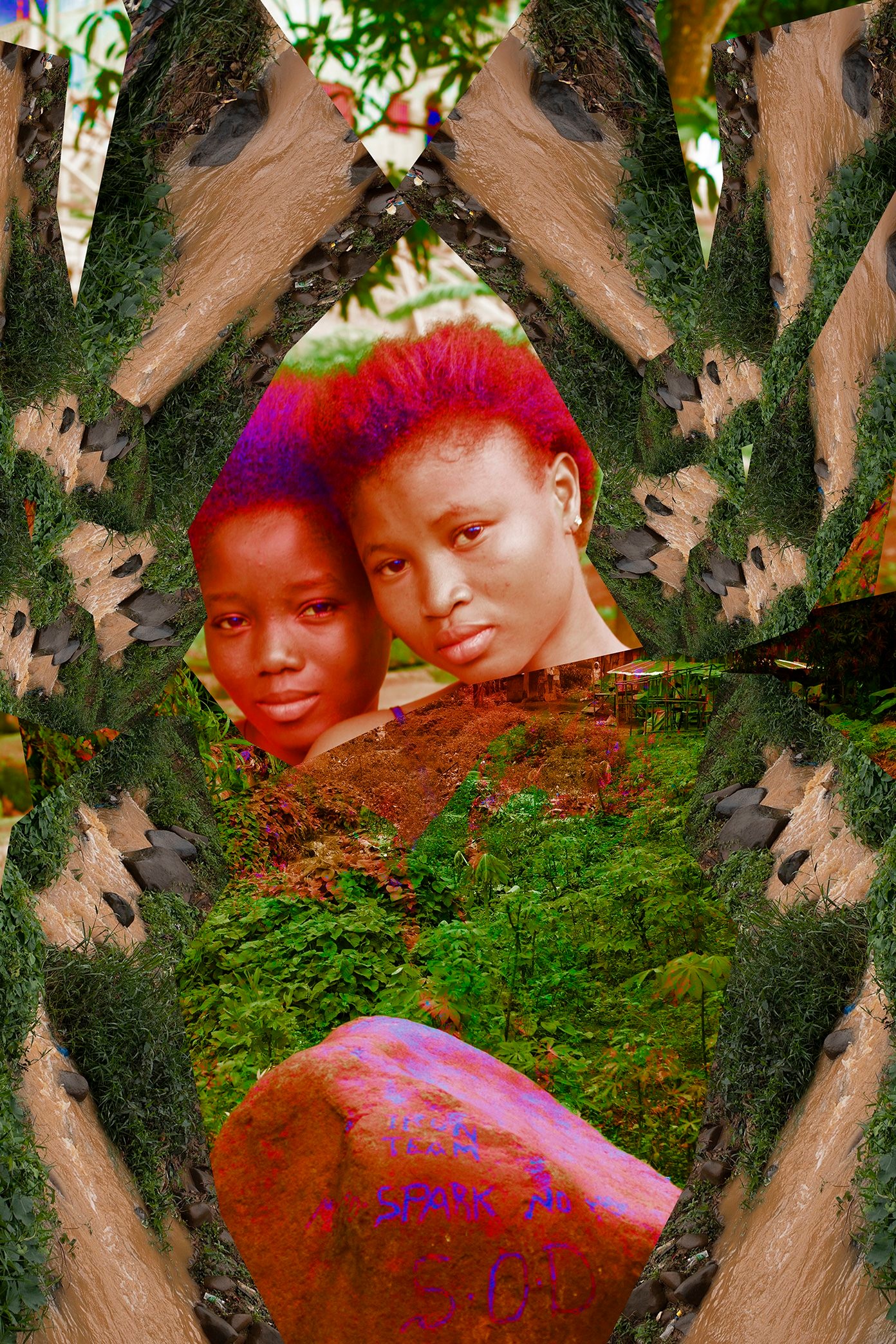
The Deconstructive Lens of Ngadi Smart: From Drag to Climate Change
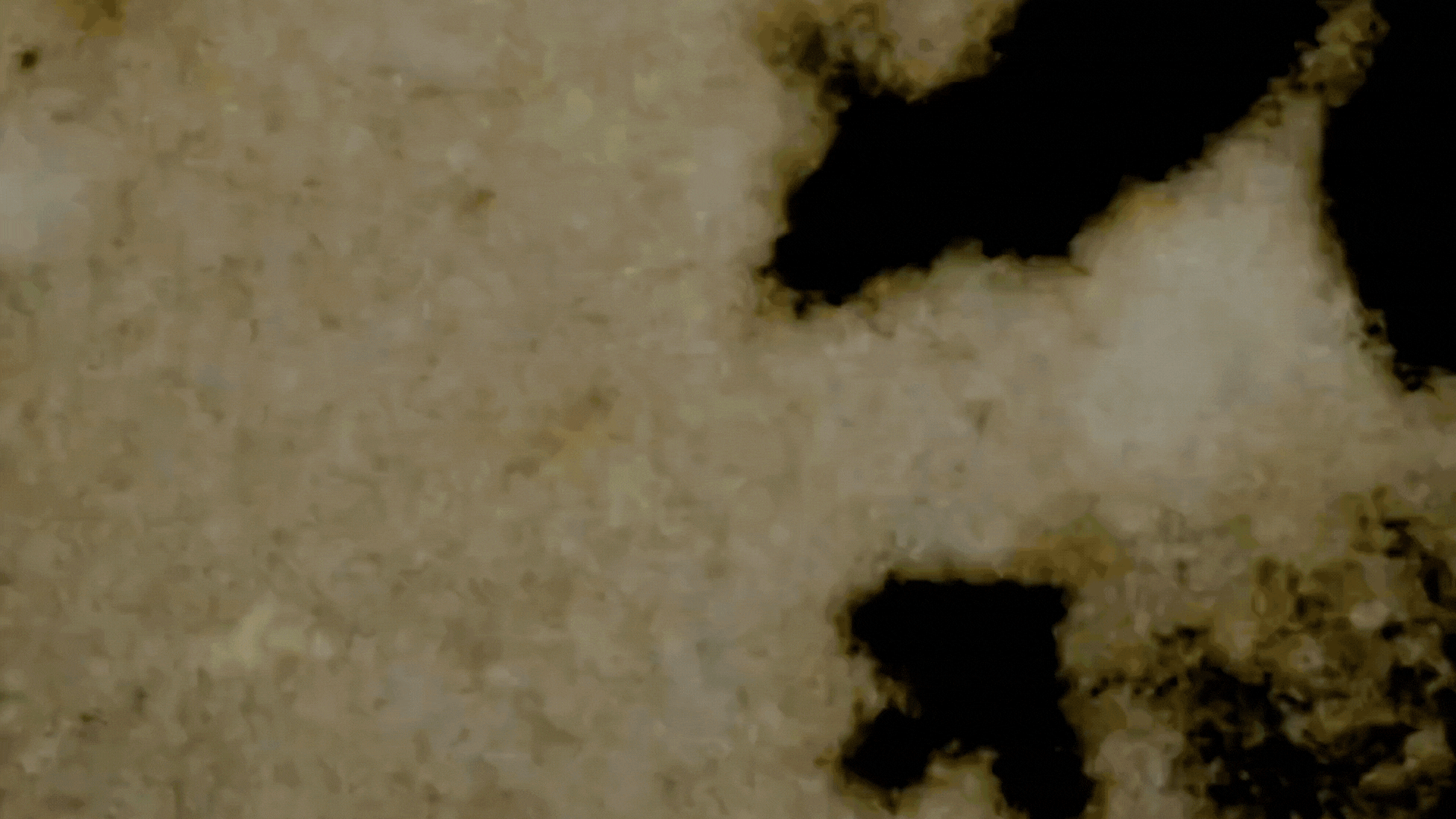
On Ghosts and The Moving Image: Edward George’s Black Atlas
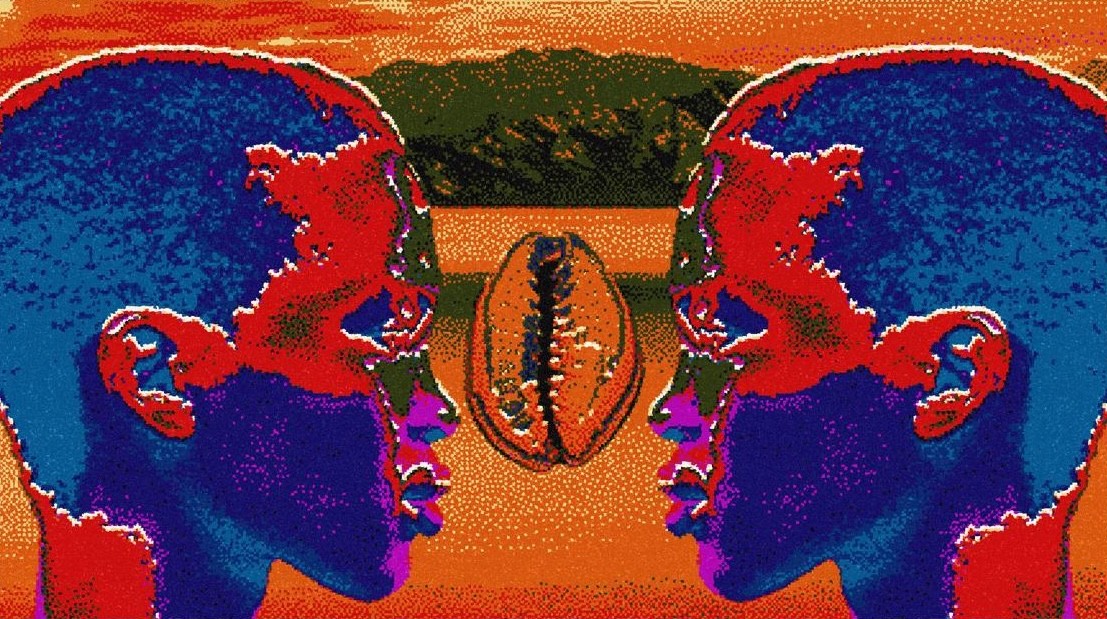
On Exile, Amulets and Circadian Rhythms: Practising Data Healing across Timezones
In Conversation

The Deconstructive Lens of Ngadi Smart: From Drag to Climate Change

On Ghosts and The Moving Image: Edward George’s Black Atlas
